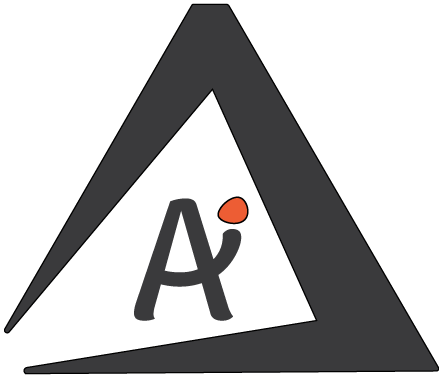What is Artificial Intelligence ?

Artificial Intelligence has always been a term which intrigues people all over the world.
Artificial Intelligence (AI) refers to the ability of machines to perform cognitive tasks like thinking, perceiving, learning, problem solving and decision making.
Definitions
It is inspired by the ways people use their brains to perceive, learn, reason out and decide the action.
Various organizations have coined their own versions of defining Artificial Intelligence. Some of them are mentioned below:
NITI Aayog: National Strategy for Artificial Intelligence
AI refers to the ability of machines to perform cognitive tasks like thinking, perceiving, learning, problem solving and decision making. Initially conceived as a technology that could mimic human intelligence, AI has evolved in ways that far exceed its original conception.
With incredible advances made in data collection, processing and computation power, intelligent systems can now be deployed to take over a variety of tasks, enable connectivity and enhance productivity.
World Economic Forum
Artificial intelligence (AI) is the software engine that drives the Fourth Industrial Revolution. Its impact can already be seen in homes, businesses and political processes. In its embodied form of robots, it will soon be driving cars, stocking warehouses and caring for the young and elderly.
It holds the promise of solving some of the most pressing issues facing society, but also presents challenges such as inscrutable “black box” algorithms, unethical use of data and potential job displacement.
As rapid advances in machine learning (ML) increase the scope and scale of AI’s deployment across all aspects of daily life, and as the technology itself can learn and change on its own, multi-stakeholder collaboration is required to optimize accountability, transparency, privacy and impartiality to create trust
European Artificial Intelligence (AI) leadership, the path for an integrated vision
AI is not a well defined technology and no universally agreed definition exists. It is rather a cover term for techniques associated with data analysis and pattern recognition.
AI is not a new technology, having existed since the 1950s. While some markets, sectors and individual businesses are more advanced than others.
AI is still at a relatively early stage of development, so that the range of potential applications, and the quality of most existing applications, have ample margins left for further development and improvement.
Encyclopedia Britannica
Artificial intelligence (AI), isthe ability of a digital computer or computer-controlled robot to perform tasks commonly associated with intelligent beings. The term is frequently applied to the project of developing systems endowed with the intellectual processes characteristic of humans, such as the ability to reason, discover meaning, generalize or learn, from past experience.
We Suggest you to read Applications of AI to learn more about the applications of Artificial Intelligence.
What is Not Artificial Intelligence ?
Since we have a lot of different technologies which exist around us in today’s time, it is very common for us to misunderstand any other technology as AI.
That is why, we need to have a clear distinction between what is AI and what is not.
As we discussed earlier, any machine that has been trained with data and can make decisions/predictions on its own can be termed as AI. Here, the term ‘training’ is important.
AI vs Automation
Washing Machine
A fully automatic washing machine can work on its own, but it requires human intervention to select the parameters of washing and to do the necessary preparation for it to function correctly before each wash, which makes it an example of automation, not AI.
Air Conditioner
An air conditioner can be turned on and off remotely with the help of internet but still needs a human touch. This is an example of Internet of Things (IoT). Also, every now and then we get to know about robots which might follow a path or maybe can avoid obstacles but need to be primed accordingly each time.
We also get to see a lot of projects which can automate our surroundings with the help of sensors. Here too, since the bot or the automation machine is not trained with any data, it does not count as AI.
Also, it would be valid to say that not all the devices which are termed as “smart” are AI-enabled. For example, a TV does not become AI-enabled if it is a smart one, it gets the power of AI when it is able to think and process on its own.
Just as humans learn how to walk and then improve this skill with the help of their experiences, an AI machine too gets trained first on the training data and then optimises itself according to its own experiences which makes AI different from any other technological device/machine. But well, surely these other technologies too can be integrated with AI to provide the users with a much better and immersive experience!
Robotics and AI can definitely open the doors to humanoids and self-driving cars, AI when merged with Internet of things can give rise to cloud computing of data and remote access of AI tools, automation along with AI can help in achieving voice automated homes and so on. Such integrations can help us get the best of both worlds
How to say a machine is AI
A machine is considered to be AI if it can apply the 3 domains of AI that are Data, Computer Vision and Natural Language Processing.

